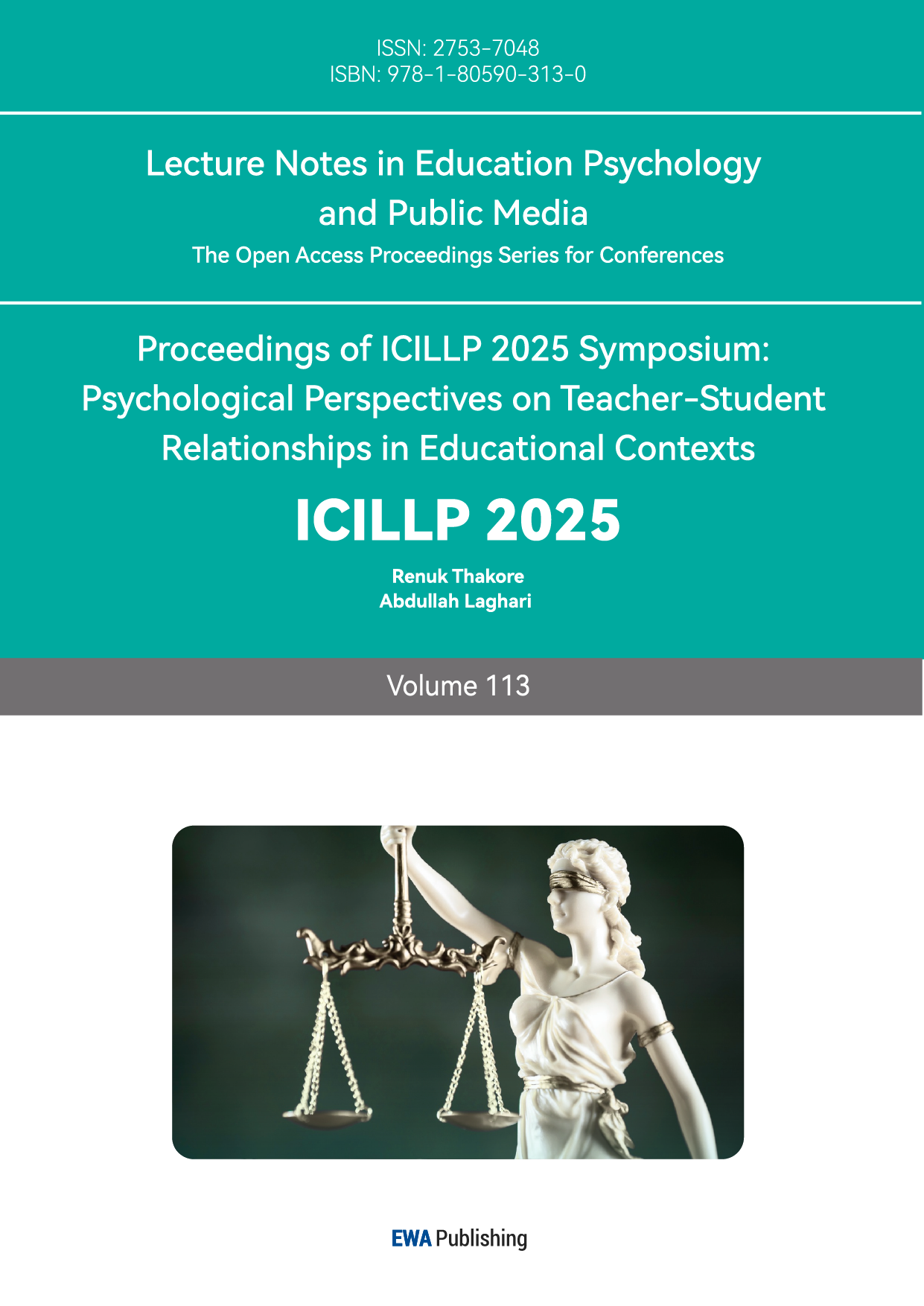References
[1]. Viberg, O., Cukurova, M., Feldman-Maggor, Y., Alexandron, G., Shirai, S., Kanemune, S., & Kizilcec, R. F. (2024). What Explains Teachers' Trust in AI in Education Across Six Countries? International Journal of Artificial Intelligence in Education, 1-29.
[2]. Yan, Y., Sun, W., & Zhao, X. (2024). Metaphorical conceptualizations of generative artificial intelligence use by Chinese university EFL learners. In Frontiers in Education. Frontiers Media SA, 9, 1430494.
[3]. Kong, X., Fang, H., Chen, W. et al. Examining human–AI collaboration in hybrid intelligence learning environments: insight from the Synergy Degree Model. Humanit Soc Sci Commun 12, 821 (2025).
[4]. Olave Astorga, J. M., & González-Carrasco, F. (2025). Evaluative Judgment: A Validation Process to Measure Teachers' Professional Competencies in Learning Assessments. Education Sciences, 15(5), 624.
[5]. Li, X., & Hu, H. (2025). Understanding how social support influences university teachers' digital competence: The mediating role of psychological empowerment and technology acceptance. China Higher Education Research, (6), 50–57.
[6]. Lei, W. (2025). Strategies for promoting formative assessment in college foreign language teaching. Journal of Changchun University, (6), 100–103, 108.
[7]. Qian, Y., & Zhang, M. (2025). Opportunities and challenges of AI-enhanced anatomy education. Chinese Medical Education Technology, 1–9.
[8]. Niu, X., & Huang, D. (2025). Building harmonious teacher-student relationships in universities in the new era: A perspective from output-oriented and care theory. In Proceedings of the 2025 Academic Conference on Social Structural Transformation and Governance Innovation in the Digital Age. Guangxi University for Nationalities, 2, 437–440.
[9]. Yao, W., Sun, C., Chen, B., Miao, Y., Liang, D., Tan, H., & Zhang, Y. (2025). Practice and exploration of AI-driven safety education for postgraduates. University Chemistry, 1–6.
[10]. Kim, Y., & Thille, C. (2025). Personalized Learning Experiences with AI: An Overview for Decision-Makers and Practitioners.
[11]. Bo, N. S. W. (2025). OECD digital education outlook 2023: Towards an effective education ecosystem. Hungarian Educational Research Journal, 15(2), 284-289.
[12]. Yang, G., Wang, X., & Li, P. (2025). Reshaping teachers' roles in the digital transformation of education: Innovation in AI-based teaching models. Science, Education and Culture Digest, (11), 11–14.
[13]. Arslan, B., Lehman, B., Tenison, C., Sparks, J. R., López, A. A., Gu, L., & Zapata-Rivera, D. (2024). Opportunities and challenges of using generative AI to personalize educational assessment. Frontiers in Artificial Intelligence, 7, 1460651.
[14]. Su, F. (2025). Risks and governance of generative AI in the development of higher education from the perspective of complex systems. Research in Higher Engineering Education, 1–6.
[15]. Zhang, Y., & Xu, J. (2025). Exploring the pathways for empowering higher education through large AI models. Science, Education and Culture Digest, (12), 1–5.
[16]. Tan, X., Cheng, G., & Ling, M. H. (2025). Artificial intelligence in teaching and teacher professional development: A systematic review. Computers and Education: Artificial Intelligence, 8, 100355.
[17]. Ren, C., Pardos, Z., & Li, Z. (2024). Human-AI collaboration increases skill tagging speed but degrades accuracy. arXiv preprint arXiv: 2403.02259.



